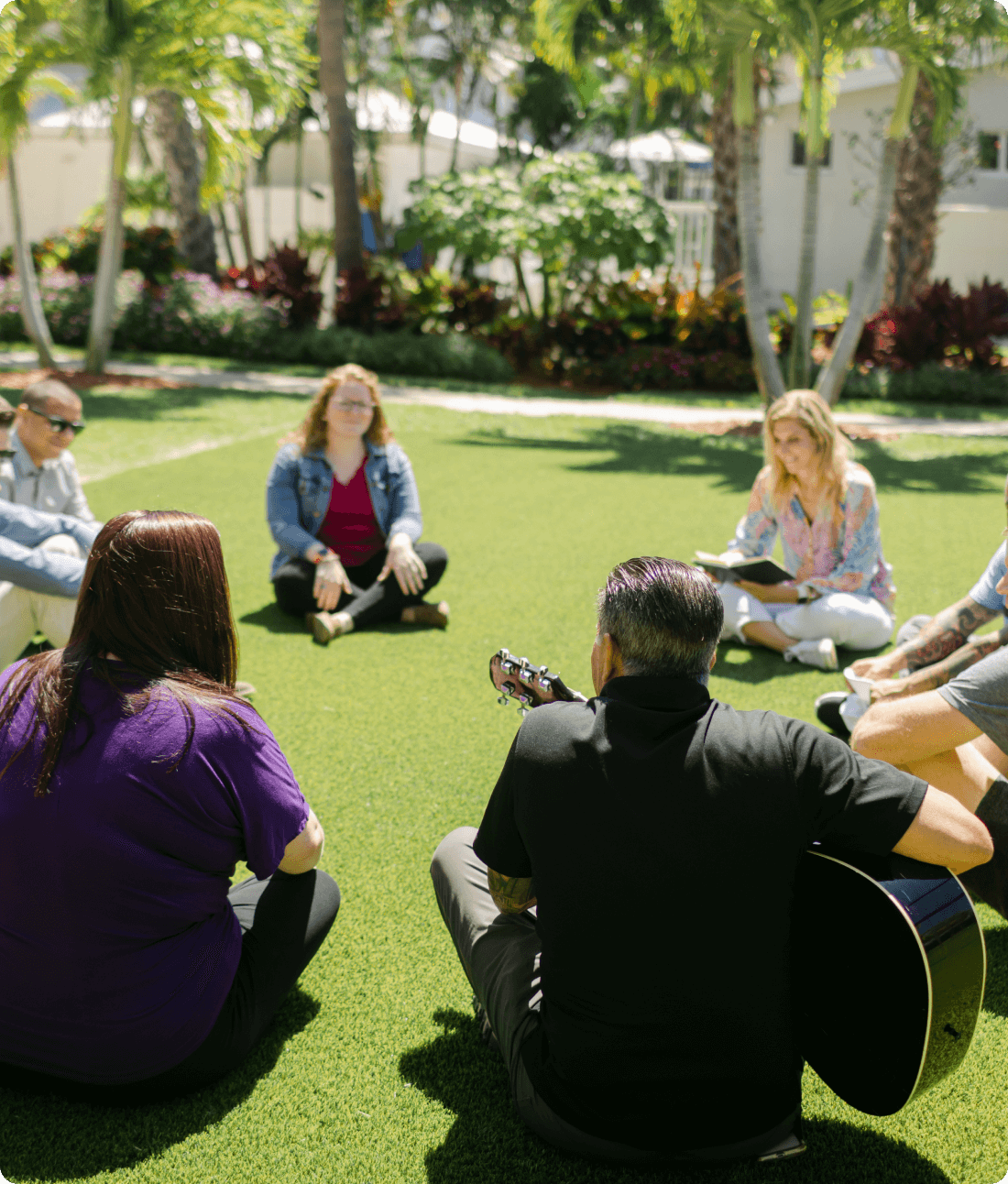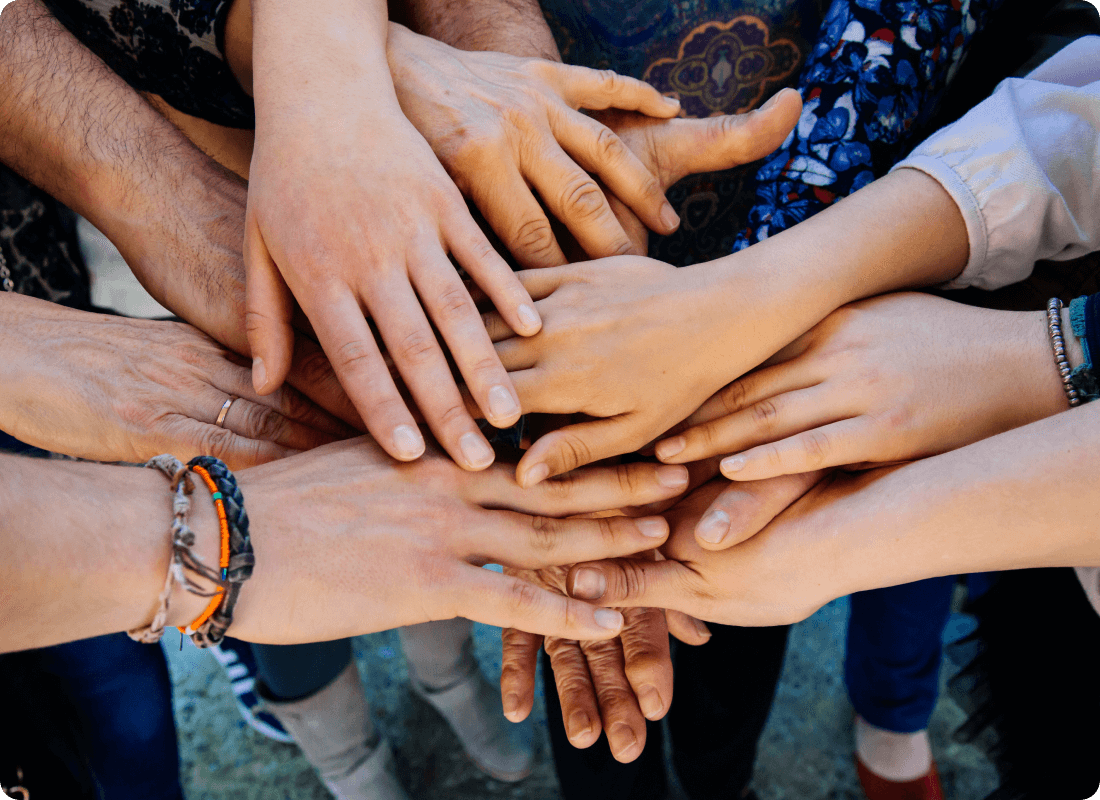

Multi Family Support Group
We believe that the disease of addiction affects many more people than just the individual who struggles with substance use disorder. Family members and friends of those that suffer from addiction are deeply impacted in a myriad of ways. We have observed that when the family participates and gains understanding, they increase the likelihood that the person struggling with addiction will shift and make changes. Dina Sagarese–Coleman, LMFT, offers a weekly support group for family members. The group is held via zoom on Wednesdays from 1 PM to 3 PM. This is a forum for education and enlightenment, with questions and concerns to be addressed by all who are participating. This group is available throughout a patient’s treatment episode. Once a patient discharges from Beachway Therapy Center, we encourage participants to continue attending Al-Anon, Nar -Anon, or therapy of their own.
More About Family
In our relationships with family members, we form the initial bonds and behavioral patterns that will impact us for the rest of our lives. These can define our personalities throughout our lives. But what if a family member is struggling with substance abuse? Substance abuse threatens to strain family relationships. Alcoholism and drug addiction traumatize and stress the entire family, and without intervention through a family recovery program, trauma can affect an individual for a lifetime.
Living in an intensely emotional environment of fear and manipulation, family members must deal with high stress and anxiety levels. It is not unusual for family members to feel like they are losing their sense of normalcy and self as their loved one’s addiction makes the family dynamics increasingly dysfunctional.
To cope with this uncontrollable situation, family members may resort to hiding the truth from themselves and others, avoiding genuine connections to minimize painful conversations, and feeling intense levels of guilt and shame. These coping mechanisms can keep family members from seeking help.
But just as the whole family suffers when one member struggles with addiction, the whole family is part of the recovery process. Without a family recovery program, family members may suffer effects that last a lifetime.
Boundaries for the family of those that suffer from addiction can be a huge part of recovery.

The Consequences of Addiction on a Family
One in five children in the US grow up in homes with parents who struggle with substance abuse. When this substance abuse goes untreated, it can have severe effects on the entire family, but children especially. Below are just some the consequences of untreated addiction trauma in family members:
-
- Learned helplessness—When a person can’t change the negative circumstances in their life, they eventually give up, and this helplessness affects other areas of their life.
- Depression—Painful negative emotions that are unexpressed or unresolved can turn inward mentally, causing depression.
- Anxiety—A general sense of anxiety may lead the sufferer to project that turmoil onto a phobia, insomnia, or hyper-vigilance.
- Emotional constriction—People can become numb, and their emotions shut down in the face of panic.
- Desire to self-medicate—A pain-filled inner world may lead to the use of drugs, alcohol, or behavioral addictions to attempt to find peace.


Beachway Therapy Center’s
Family Addiction Recovery
Program
Along with the long-term consequences outlined above, family members may suffer more acutely during a loved one’s period of active addiction—sleepless nights, wondering if their loved one is safe, and feelings of anger and frustration. It’s an arduous path, but addiction treatment can provide a significant sense of relief…and maybe a respite.
People often direct so much time and energy toward their loved one’s struggles that it’s difficult to let go of the worry and the obsessive thoughts. This is because many people aren’t sure how to support someone in rehab.
Recovery may need to happen for the family, as well as for the patient. The family may need to let go of control and obsession about their loved one as much as the patient needs to let go of their addiction. This is an important step in learning how to support someone in rehab.
Sometimes trying to treat an individual that struggles with substance abuse without addressing family dynamics would only be treating one facet of the problem. The entire family suffers when one member suffers from addiction, so the whole family may need to be a part of the recovery process.


What Is Family Therapy?
Addiction is often called a family disease, as it has so many far-reaching, long-term effects on the family dynamic. Dysfunctional and unhealthy family dynamics brought about by substance abuse require healing and change. While the patient is in treatment, they participate in intensive and individual therapy with a constant focus on recovery. However, their families do not typically have that luxury. But family therapy sessions may be critical for success and continued sobriety after they discharge from treatment.
Active participation in family programs and individual therapy, Al-anon, Narc-anon, or similar peer support groups can be constructive and participate in a family program that a treatment center offers.
Family therapy offers many tangible benefits for patients and their loved ones. The following can be beneficial in family therapy for patients and their families:
-
- Communication skills and a better understanding of the problem
- Family conflict resolution
- A chance for family members to voice how actions have impacted their lives
- A safe space for participants to express emotions and ask questions about addiction and recovery
- Plans for supporting the patient after they complete addiction treatment
- Learning coping skills for future family challenges
- Discovering ways to rebuild trust and set boundaries
Family therapy is a safe place for families to have productive conversations around the challenges and emotions surrounding addiction and substance abuse.

Resources for Families and Friends
of Addicts and Alcoholics
Codependent No More: How to Stop Controlling Others and Start Caring for Yourself by Melody Beattie
Beyond Codependency: And Getting Better All the Time by Melody Beattie
Codependents’ Guide to the Twelve Steps by Melody Beattie
The Language of Letting Go by Melody Beattie
Don’t Let Your Kids Kill You: A Guide for Parents of Drug and Alcohol Addicted Children by Charles Rubin
One Day at a Time in Al-Anon by Al-Anon Family Group Head Inc
Courage to Change: One Day at a Time in Al-Anon II by Al-Anon Family Group Head Inc
Addict in the Family: Stories of Loss, Hope and Recovery by Beverly Conyers
Everything Changes: Help for Families of Newly Recovering Addicts by Beverly Conyers
Beautiful Boy: A Father’s Journey Through His Son’s Addictions by David Sheff
Alcoholics Anonymous (Chapters 8 and 9: To Wives and The Family Afterwards) by AA World Services


The Challenges of Learning
How To Support Someone in
Rehab
The first hurdle when learning how to support someone in rehab may be keeping the patient in treatment. The vast majority of people coming into treatment will want to leave prematurely at some point. The “fight, flight or freeze” response to stress – and treatment can be stressful. Often this happens in the first few days when the patient is still detoxing and is uncomfortable.
The desire to stop the discomfort and pain can overcome any rational thinking, and the denial can be so powerful that the patient is unaware that they aren’t making smart choices. The family has to be strong enough to say no to their loved one when they ask to come home. Sometimes this might mean removing all access to funds, not taking phone calls, and allowing the patient to confront their own discomfort.
The dichotomy is that the more the family tries to help or rescue their loved one, the more they actually enable or contribute to the disease and potentially prevent them from recovering.



